 |
| Tunnel shaft in mosque |
רקטות בתוך בית קברות בעזה pic.twitter.com/NnHiANISRd
— יוני בן מנחם yoni ben menachem (@yonibmen) December 22, 2023
 Elder of Ziyon
Elder of Ziyon |
| Tunnel shaft in mosque |
רקטות בתוך בית קברות בעזה pic.twitter.com/NnHiANISRd
— יוני בן מנחם yoni ben menachem (@yonibmen) December 22, 2023
 Elder of Ziyon
Elder of Ziyon3D analysis shows patterns of radial fragmentation on the southwest side of the impact crater, as well as a shallow channel leading into the crater from the northeast. Such patterns indicate a likely projectile trajectory with northeast origins.In reviewing our analysis, investigator & explosive weapons expert @CobbSmith agrees the fragmentation patterns may indicate the projectile came from the northeast—the direction of the Israeli-controlled side of the Gaza perimeter—and not from the west, as claimed by the IOF.
Our/@CobbSmith’s analysis of the crater size suggests a munition larger than eg a Spike or Hellfire missile commonly used by IOF drones. It is more consistent w/ the impact marks from an artillery shell—but w/o additional material evidence, we cannot make a definitive assessment.
@earshot_ngo analysed the recording released by IOF officials of an alleged exchange between members of Hamas implicating the Islamic Jihad in the attack. They found that the recording was manipulated and therefore not a credible source of evidence:
...A conclusive investigation into this attack requires full access to the site and munition fragments, as well as witness interviews. We continue our work on this case, and reaffirm our solidarity with Palestinian people under attack, including our friends & colleagues.
Cobb-Smith said that the conflagration following the blast was inconsistent with an artillery strike, but that it could not be entirely ruled out.
 Elder of Ziyon
Elder of ZiyonAn investigation into a massacre in a destroyed Palestinian village carried out by Israeli forces in the 1948 war surrounding Israel’s creation has identified three possible mass graves beneath a present-day beach resort.Palestinian survivors and historians have long claimed that men living in Tantura, a fishing village of approximately 1,500 people near Haifa, were executed after surrendering to the Alexandroni Brigade and their bodies dumped in a mass grave believed to be located under an area that is now a car park for Dor Beach. Estimates have ranged from 40 to 200 people.In recent years, a growing body of evidence for the Tantura massacre has generated significant controversy in Israel, where atrocities committed by Jewish forces in 1948 remain a highly sensitive subject: an Israeli-made documentary about what happened in the village faced widespread backlash on its release last year.The extensive new investigation by the research agency Forensic Architecture identifies what it says is a second mass grave site in the former village of Tantura, as well as two more possible locations, in the most comprehensive research yet.
If there was a massacre of 200 to 250 people at Tantura, it was the largest of the 1948 massacres. But there is no available document from 1948 that mentions a massacre at Tantura, apart from one document, which I’ll come back to below, that deals with the execution of a handful of Arab prisoners of war on the fringes of the village. Strange, very strange, because all the massacres perpetrated by Jews in 1948 are at least mentioned, if not described, in documents from 1948. These include documents of the Haganah, the main Jewish militia until the end of May 1948, the Israel Defense Forces, the UN (which had observers on the ground from May 1948), the Red Cross (whose officials operated in the country from April 1948), as well as records by the British and the Americans, whose representatives reported from Israel to London and Washington about the wartime events.Deir Yassin, Burayr, Ein Zeitun, Lod, Hunin, Dawayima, Eilabun, Arab al-Mawasi, Majd al-Kurum, Saliha, Jish, Safsaf, Bi’na-Deir al Asad – the massacres perpetrated by Jews in these places and others are all mentioned in contemporary 1948 documentation, and in some cases are described in detail. Just not Tantura, not one mention.Not that Haganah/IDF officers ignored Tantura in 1948. Accounts of the battle, the expulsion, the demolition of buildings afterward, all appear in the documents. Just not a massacre. On June 18, during the war’s First Truce, under the supervision of the International Red Cross and the United Nations, more than a thousand refugees from Tantura were transferred in an army convoy to Tulkarm, then under Iraqi army control. A document in the Haganah Archives sums up Arab radio broadcasts of that period (Haganah Information Service, “E.I. [Eretz Israel, Mandatory Palestine], June 21-22, 1948”): “An Arab woman from Tantura… relates that the Jews are raping Arab women and demolishing the place.” But according to the report, the woman did not mention by so much as a word that the Jews also massacred hundreds of her fellow villagers. (A slightly different version of this report states that the woman related that the Jews “raped women in addition to the acts of robbery, theft and arson.” Again, no mention of a massacre). These items were broadcast on Radio Ramallah.In addition, as far as I was able to discover, the archives of the UN and the Red Cross – whose officials organized and escorted the move of the Tantura refugees to Tulkarm and reported frequently to their headquarters – contain no mention of a massacre at Tantura. Does it stand to reason that among the thousand deportees, who were no longer under Jewish control, not one bothered to tell the Iraqi officers or the UN and Red Cross officials that, by the way, they had endured a horrific massacre of their fathers, brothers, sons, as described by Katz and Schwarz and their supporters? It is simply inconceivable, if a large-scale massacre that they had eyewitnessed or at least heard about had indeed occurred.
We believe that if bodies were laid shoulder to shoulder and oriented northwards in a single layer, there could be around seventy bodies under a mound of this size. Were the bodies to be layered on top of each other, as one testimony suggests, the total number could be double that, up to approximately 140 bodies. Thus, our assessment is that the total number of bodies contained in a mass grave site such as this would be in the range of seventy to 140.... As we did with Earthwork 1, we used the measurements of the mound to calculate the likely number of bodies which could be buried there. Our assessment is that the total number of bodies in a mass grave of this size is in the range of forty to eighty.
|
Or order from your favorite bookseller, using ISBN 9798985708424. Read all about it here! |

|
 Elder of Ziyon
Elder of Ziyon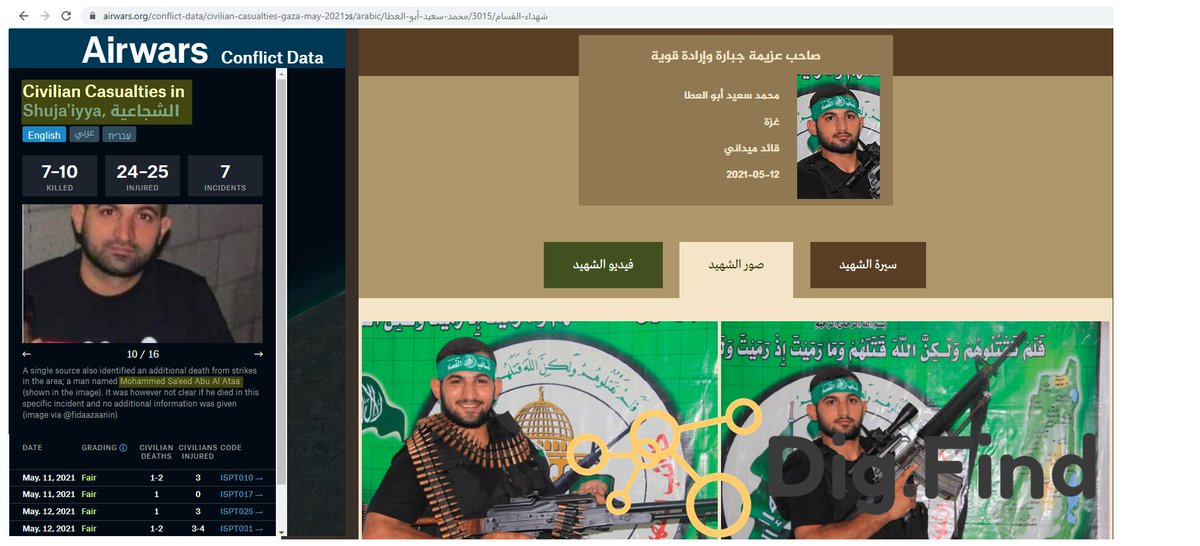
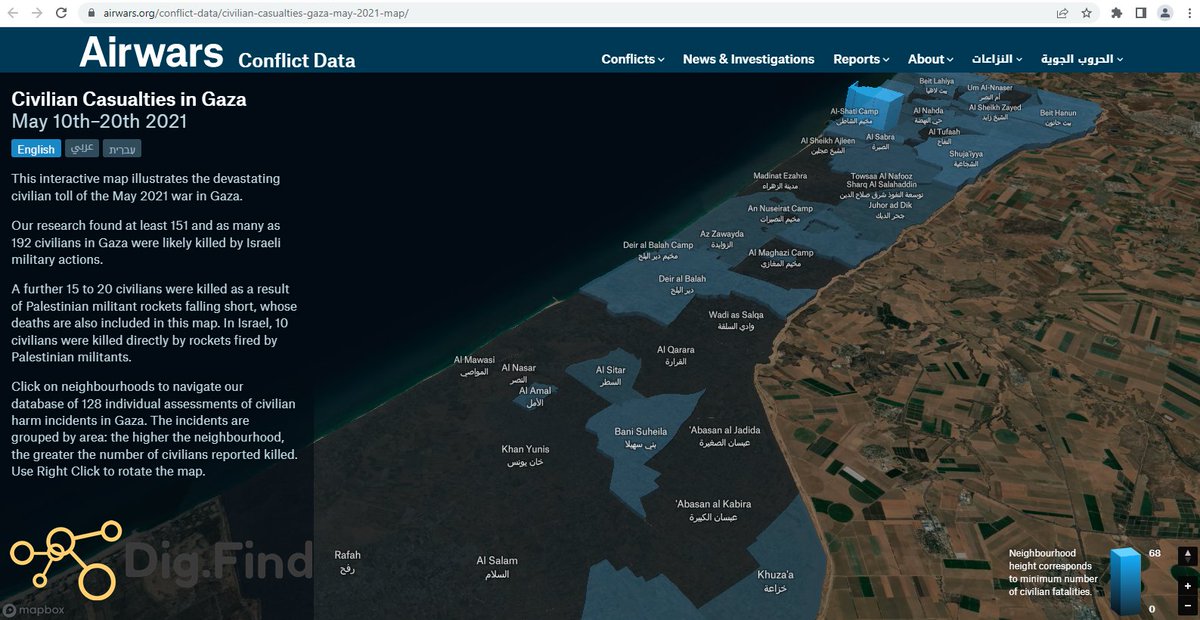
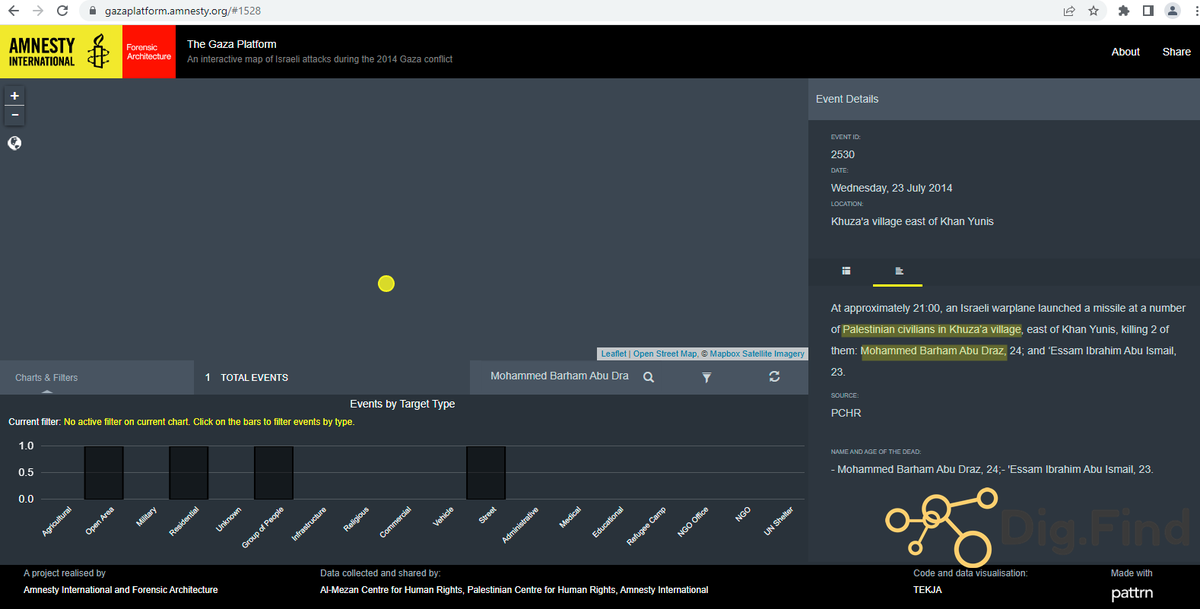
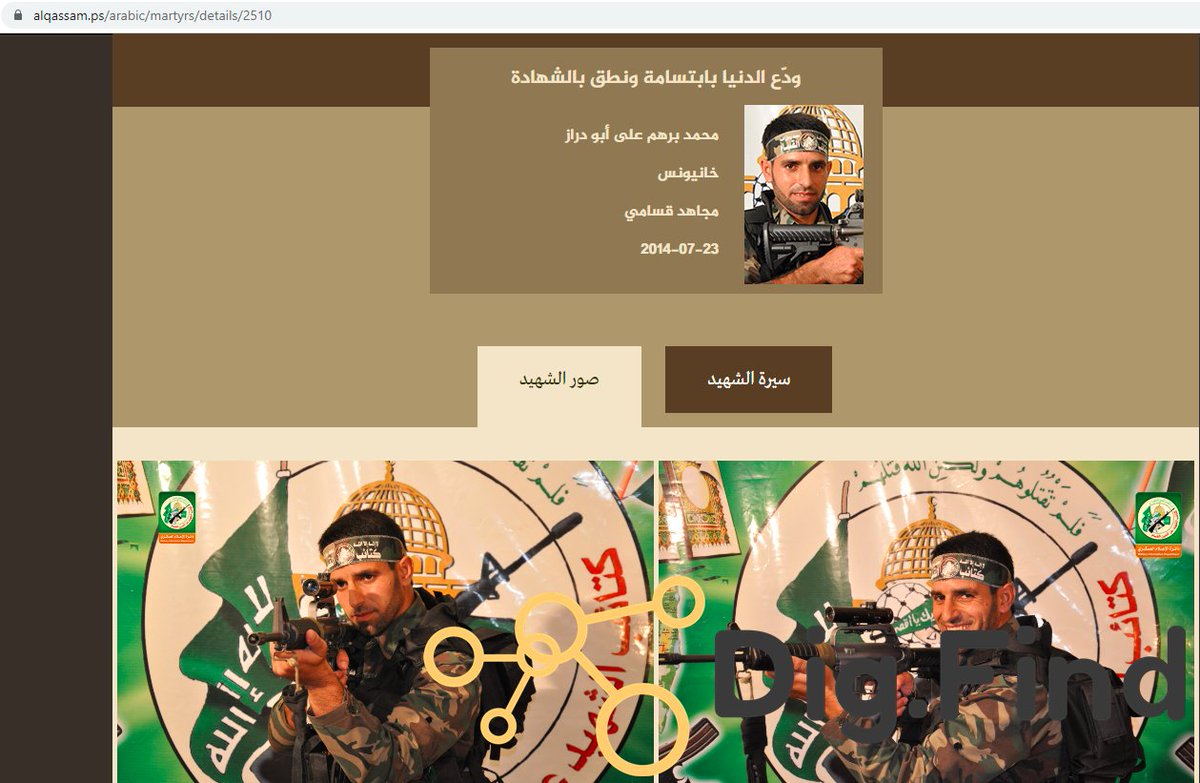



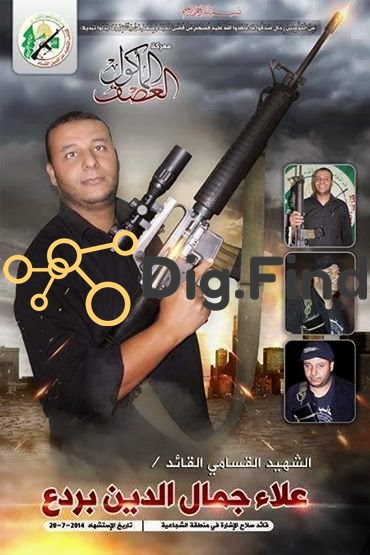
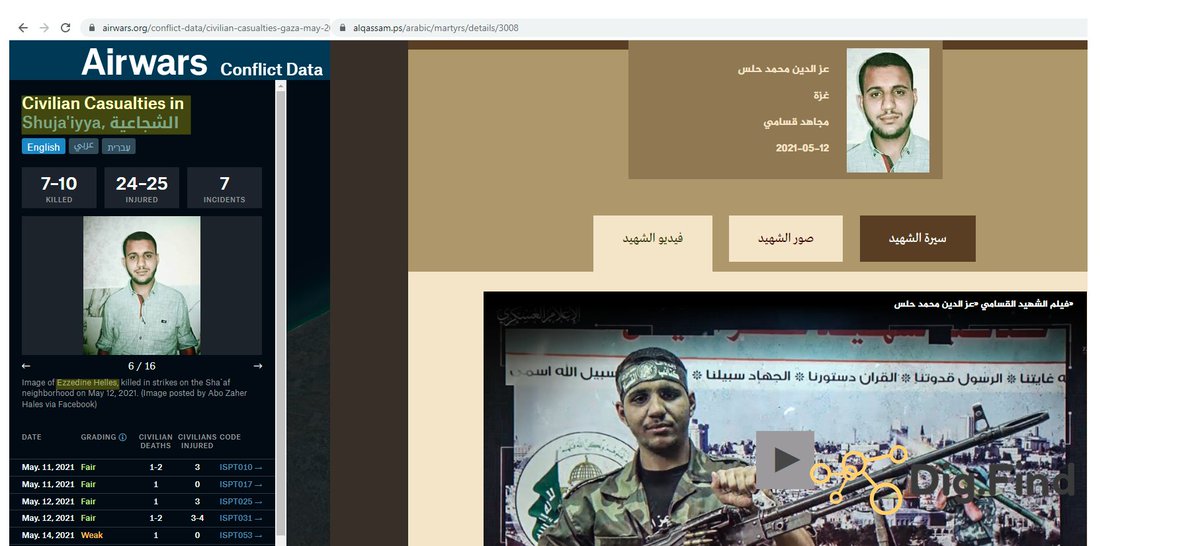
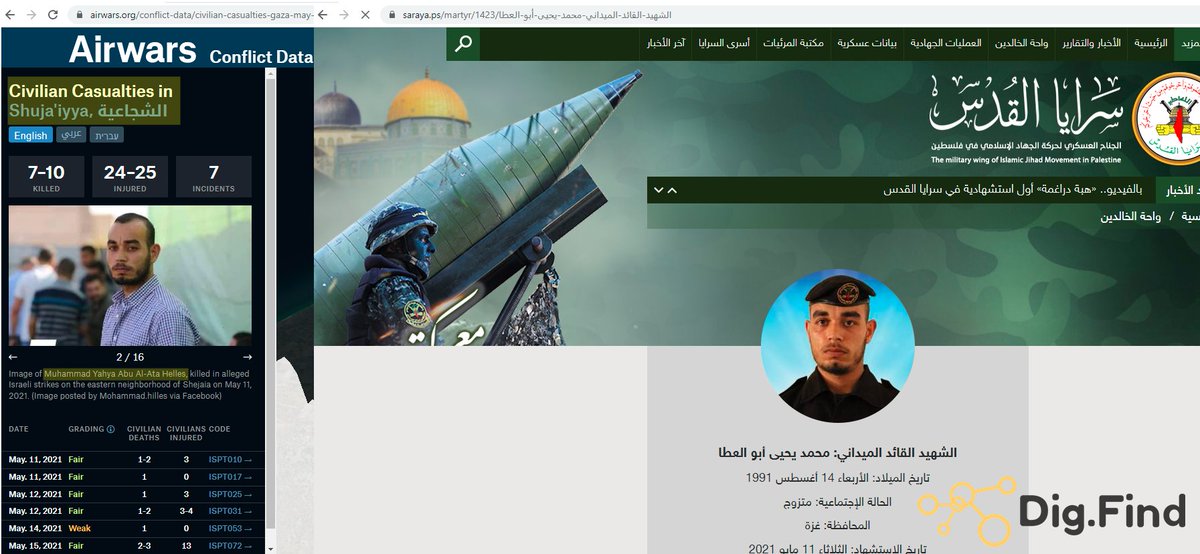

|
Or order from your favorite bookseller, using ISBN 9798985708424. Read all about it here! |

|
 Elder of Ziyon
Elder of ZiyonAn Israeli airstrike on an agrochemical warehouse during last year’s war in Gaza amounted to the “indirect deploying of chemical weapons”, according to a report analysing the attack and its impact.Incendiary artillery shells fired by the Israel Defence Forces (IDF) hit the large Khudair Pharmaceutical and Agricultural Tools warehouse in the north of the Gaza Strip on 15 May last year, setting fire to hundreds of tonnes of pesticides, fertilisers, plastics and nylons. The strike created a toxic plume, which engulfed an area of 5.7 sq km and has left local residents struggling with health issues, including two reports of miscarriages, and indications of environmental damage.The extensive investigation, which involved analysing mobile phone and drone footage and CCTV, dozens of interviews with residents, and analysis from munitions and fluid dynamics experts, used 3D modelling of the warehouse to determine the circumstances of the attack.It is the first publication by Palestinian human rights NGO Al-Haq’s newly established forensic architecture investigation unit, a first-of-its-kind collaboration in the Middle East with Forensic Architecture, a research agency based at Goldsmiths, University of London, which carries out spatial and media analysis for NGOs and in international human rights cases.
|
Or order from your favorite bookseller, using ISBN 9798985708424. Read all about it here! |

|
 Elder of Ziyon
Elder of ZiyonOn 23 February 2022, Al-Haq launched its report titled “Cultural Apartheid, Israel’s Erasure of Palestinian Heritage in Gaza”. The report builds from an investigation by the London-based research agency Forensic Architecture using advanced technologies and ‘open-source’ techniques to reconstruct one of the most significant archaeological sites in the occupied Gaza Strip. The report draws on Israel’s strategic bombing of the Gaza coastline to exemplify the erasure of Palestinian cultural heritage and the denial of the relevant human rights. Israel’s bombardments not only breach the principle of military necessity in violation of the laws of armed conflict, but also aim at gradually erasing Palestinian cultural heritage to deny the Palestinian people of their right to self-determination over their cultural resources, and by extension threatens their existence as a people. Such bombings are a gross violation of the Rome Statute, constituting war crimes, and crimes against humanity.In the report, Al-Haq outlines that the bombing of the site may amount to a war crime and contributes to the crime against humanity of apartheid.[1] The targeting of Palestinian cultural heritage, fundamentally affects the core of their identity and existence as a people. For example, the International Criminal Court underlines the nexus between destruction of cultural heritage and crimes against humanity, especially when the former occurs within the context of an attack against the civilian population, forms part of a state policy and is carried out in a widespread or systematic manner.[2] Additionally, under the Rome Statute, the crime of apartheid when committed as part of a widespread or systematic attack against the civilian population, with knowledge of the attack, amounts to a crime against humanity.[3]
 Elder of Ziyon
Elder of ZiyonIsraeli forces executed a 26-year-old Palestinian at a checkpoint in the occupied West Bank last year, a report has alleged, challenging Israeli police claims that the man was a “terrorist” conducting an attack.Forensic Architecture, a British research body based at Goldsmiths, University of London, said it had conducted an analysis into the death of Ahmad Erekat, who was shot seconds after his car crashed into a booth and lightly wounded an Israeli border guard.The incident last June was described on the day by Israeli police as a “vehicle attack”, saying that its forces had “quickly neutralize [sic] the threat from the terrorist”.In the past few years, Palestinian attackers have used car-rammings against Israeli security forces and civilians.However, Forensic Architecture said its investigation, which reconstructed the scene using available film, including security footage published by police, cast “significant doubt” on claims Erekat was involved in an attack, and suggested the crash may have been an accident.
Buy EoZ's books!
PROTOCOLS: EXPOSING MODERN ANTISEMITISM
If you want real peace, don't insist on a divided Jerusalem, @USAmbIsrael
The Apartheid charge, the Abraham Accords and the "right side of history"
With Palestinians, there is no need to exaggerate: they really support murdering random Jews
Great news for Yom HaShoah! There are no antisemites!
